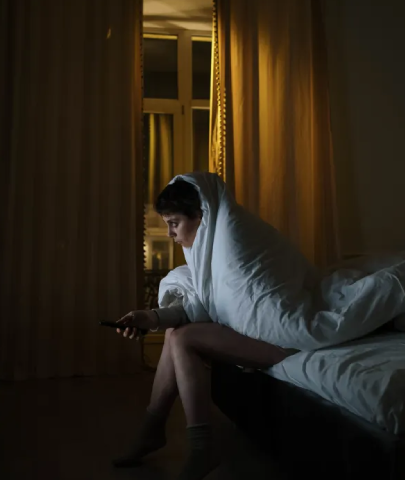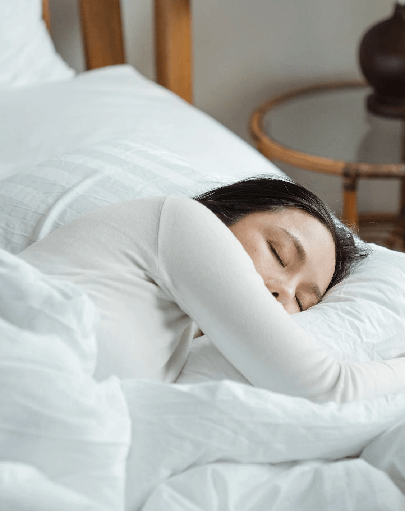

You have been sleeping for the recommended 7-8 hours, yet you wake up tired and not wanting to get out of bed. How could this be? What could be stealing your energy?
It’s common for most people to wake up feeling sluggish due to a normal phenomenon called sleep inertia.
Sleep inertia, or sleep drunkenness, is the fuzzy-headed feeling you experience when you wake up. This drowsiness typically fades in 15 to 30 minutes, but it may last a few hours, especially if sleep-deprived.
For most people, sleep inertia is nothing to worry about. However, if you’re having trouble shaking off your morning fatigue even after getting enough sleep, the cause could be in your sleep environment, daily habits, or an underlying sleep problem.
Evaluate Your Mattress
If you are waking up tired with no energy and with body aches and pains, your mattress may be to blame. Your mattress greatly determines how rested you wake up. Body aches and pains, particularly around the neck and lower back, are signs that your mattress is no longer working for you.
The right mattress enhances sleep quality by properly supporting your spine and cushioning your pressure points. This promotes uninterrupted and restorative sleep, impacting how rested you feel when you wake up.
Monitor Sleep Duration and Quality
If you’re waking up tired with no energy even after 8 hours of sleep, you could be confusing sleep quantity with quality. Whether you wake up rested and full of energy depends on your sleep quality, not how long you have been asleep.
Sleep tracking apps may help shed light on the quality of your sleep. These devices can track sleep duration and efficiency (how much time you spend in each sleep stage).
Some sleep trackers can also detect interrupted sleep or fragmented sleep. Regularly interrupted sleep can lead to waking up tired with no energy, daytime sleepiness, mood disorders, and reduced quality of life.
Pay Attention to Sleep Environment
Environmental conditions, such as lighting, temperature, and noise, directly impact sleep quality.
Artificial Light and Sleep
Artificial light at night can interfere with the production of melatonin- a hormone that helps promote sleep.
Make your bedroom darker for better sleep by;
-
Investing in blackout curtains.
-
Blocking light from under the bedroom door.
-
Blocking or removing artificial light sources.
Temperature and Sleep
Both heat and cold exposure can lower sleep quality by increasing wakefulness and decreasing REM and slow-wave sleep. Generally, healthy individuals sleep better when the bedroom temperature ranges between 60 and 68 degrees Fahrenheit (15.6 to 20 degrees Celsius).
Noise and Sleep
Noise at night can arouse you briefly, even without you noticing it. Regular exposure to sleep-interrupting sounds can lead to fragmented sleep, which could be one reason for waking up tired with no energy.
Look for ways to block out noise when sleeping, including;
-
Wearing earplugs.
-
Installing heavy curtains.
-
Muffling wall decorations and acoustic tiles.
Related: How to design the perfect bedroom for better sleep.
Revisit Your Diet
Diet and nutrition can and do influence sleep quality. What you eat, particularly shortly before bedtime, can determine whether or not you get restorative sleep at night. Experts say nuts, rice, nighttime milk, fatty fish, and kiwi fruit are some of the best foods for better sleep. On the other hand, caffeinated foods and drinks, pizzas, cheese, and smoothies can sabotage your sleep, increasing your chances of waking up tired.
Set a Routine
Don’t underestimate the importance of creating a consistent sleep schedule. A sleep routine is important because it gradually winds you down and prepares you for sleep at your typical bedtime. This makes it easy to fall asleep faster and remain asleep throughout the night. Remember to stick to your established sleep routine throughout the week, including weekends, to maintain your circadian rhythm.
Limit Screen Time
Device screens affect sleep quality by emitting short-wavelength blue light similar to sunlight. Blue light from sunlight helps in regulating our natural sleep-wake cycle. Artificial blue light from TVs, smartphones, tablets, and some e-readers may trick your brain into thinking it’s still daytime. This prevents the brain from “turning off” and blocks the production of the melatonin hormone. Consequently, you spend the recommended 8 hours in bed, but you don’t get the necessary sleep quality.
Consult a Professional
Waking up tired with no energy sometimes is normal, even when you’ve slept for 7-8 hours. However, if morning tiredness lingers throughout the day and is starting to affect your life quality, it’s recommended to consult your healthcare provider.
Conclusion
Waking up tired, a bit confused, or sluggish is a normal part of the sleep cycle. It’s called sleep inertia, and it affects almost all of us. Although it’s hard to escape sleep inertia, you can improve your morning alertness by getting a comfortable and supportive mattress, limiting screen time before bedtime, optimizing your bedroom for restful sleep, and avoiding eating before sleep. If nothing seems to work, it may be worth speaking with your doctor and getting tested for an underlying health condition.



